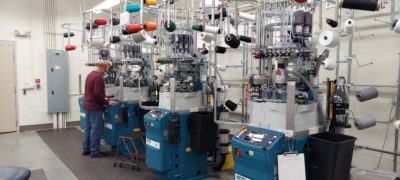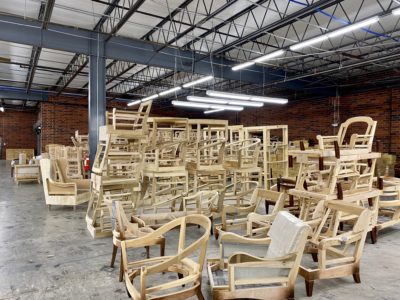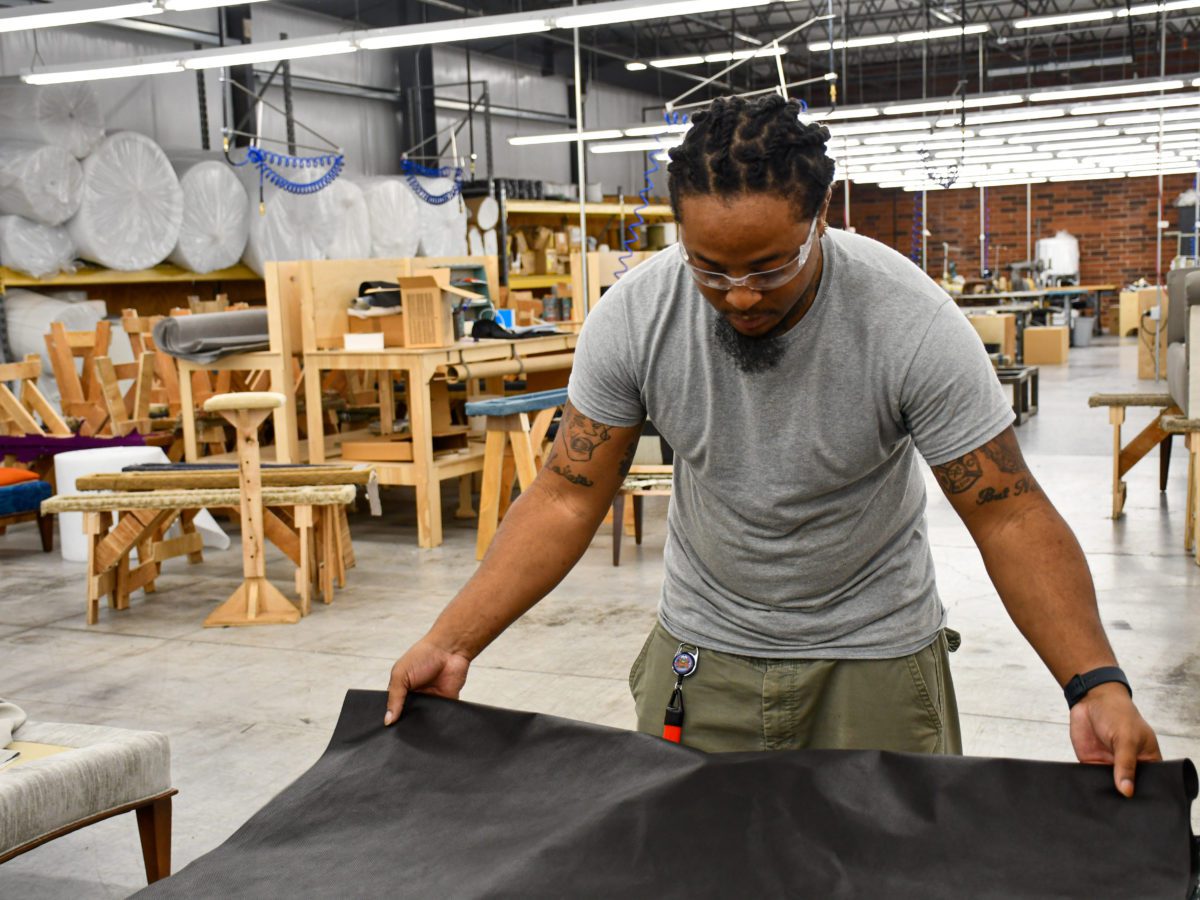
Share this story
- The furniture academies of @CatawbaValleyCC are paving the way for more collaborative programs to emerge. The academies are industry-driven – ensuring students receive quality training for high-demand jobs.
- “We have been able to turn ourselves inside out and deliver programming that is both relative and sustainable. We listen. That’s what we do.” @cvccled tells how @CatawbaValleyCC transformed a program.
|
|
Tyon Propst is meticulous – carefully laying the dust cover across the ottoman he is upholstering. He likes being creative and is proud of the work he produces.
For Propst, attending Catawba Valley Community College’s (CVCC) Furniture Academy is a chance to achieve his professional and personal goals. He called the training profitable and said he continues to learn and be challenged even though he has extensive experience in furniture manufacturing.
The Furniture Academy is a hands-on training program that prepares students for high-demand jobs in manufacturing – a sector that accounted for 22.2% of the total employment in Catawba Valley’s service areas from 2019 to 2020.
With two locations in Catawba and Alexander counties, the program has over 40 supporting partners, many of whom are furniture manufacturers.
It’s a unique collaboration between the college and industry leaders.
Despite being competitors, the founding industry partners at both locations came together to create a program that prepares students for skilled positions that are in high demand.
Students take a variety of classes from furniture fundamentals to sewing to upholstery. And in eight to 11 months, they’re prepared for the next step in their career with salaries that range from $30,000 to $60,000.
Those who come through the academies enroll for a variety of reasons. For some, it’s a direct path to higher wages. For others, it’s an opportunity to upskill and cross-train. There are students in the program with advanced degrees who want hands-on experience to take their work to the next level.
The furniture academies have also been host to students coming out of decades-long careers who need a change.
Over 350 students have graduated since the program’s inception in 2014, and it has a 100% hiring rate. But the impact of the furniture academies doesn’t end there. The academy model has opened doors for more collaborative partnerships to meet the growing needs of the community.
The rebirth of a training center
Manufacturing is the largest employer in Catawba Valley’s service area. According to a 2021 economic impact study of North Carolina’s community colleges, the industry supported 27,428 jobs in Alexander and Catawba counties from 2019 to 2020.
For years, Catawba Valley offered a furniture manufacturing program that trained students and met industry demands. But in the early 2010s, manufacturing CEOs expressed to CVCC President Dr. Garrett Hinshaw that the program no longer provided the training and skills their employees needed. Hinshaw made the decision to pause the program in 2012.
The pause gave the college and industry leaders a chance to rethink how they partnered.
In 2014, CVCC opened the doors to its first furniture academy located a few miles from main campus. The college and its five founding industry partners (Century Furniture, Lee Industries, Lexington Home Brands, Sherrill Furniture, and Vanguard Furniture) collaborated to build a program that would train students for guaranteed jobs and meet the workforce demands of the community.
By 2016, the college opened a second furniture academy in Alexander County with three founding industry partners: Craftmaster Furniture, Kincaid Furniture, and Mitchell Gold + Bob Williams.
CVCC is the hub for the program, but the training itself is driven by industry – with field experts filling instructor roles.
Ronnie Wilcox and Davashia Woods are instructors for the academy and both work in furniture manufacturing.
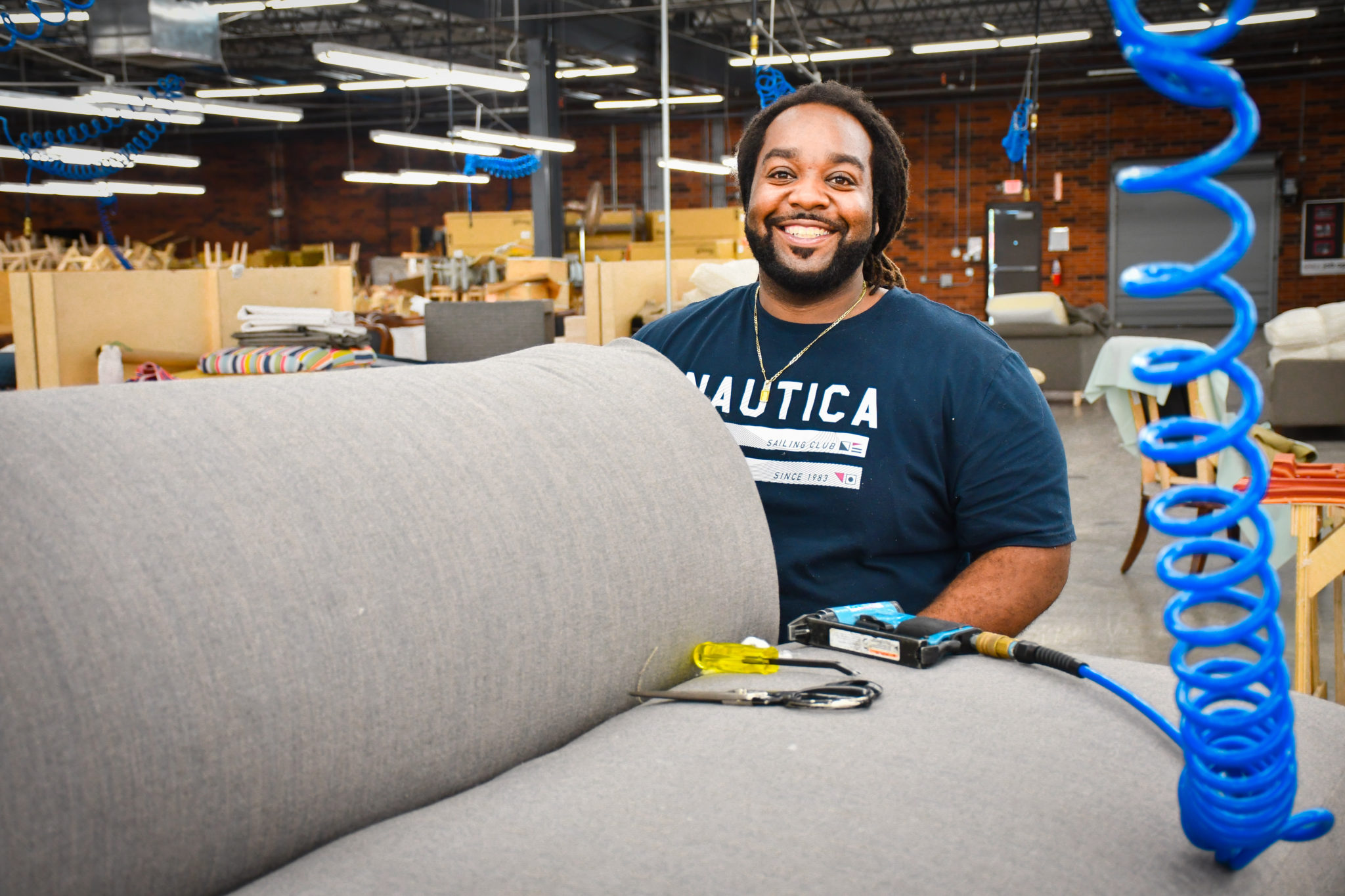
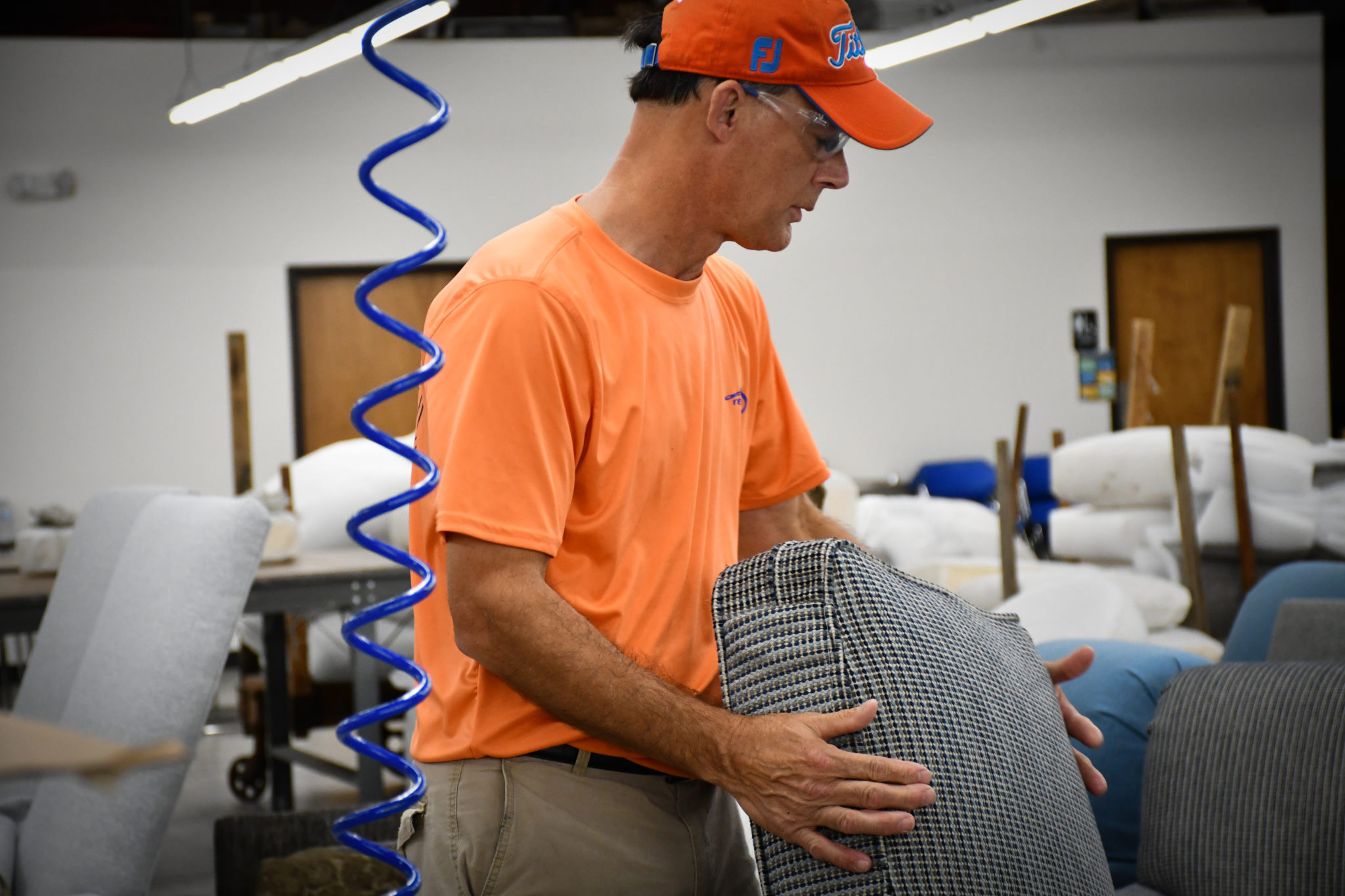
Wilcox has over 25 years of experience. He teaches because he knows how difficult it is to work your way up without quality training.
“I know where they’re coming from – trying to get started [in the industry],” he said. “It makes it rewarding for me to teach these guys…give back a little.”
Woods is a product of the academy and said it helped jumpstart his career.
“You start from the bottom – not making a lot of money, trying to figure out what you can do to provide for your family,” he said. “This took me from where I was to where I am now. It’s a good trade – it’s profitable…it’s challenging…it’s rewarding.”
The students think so, too.
Hunter Hall comes from a furniture family.
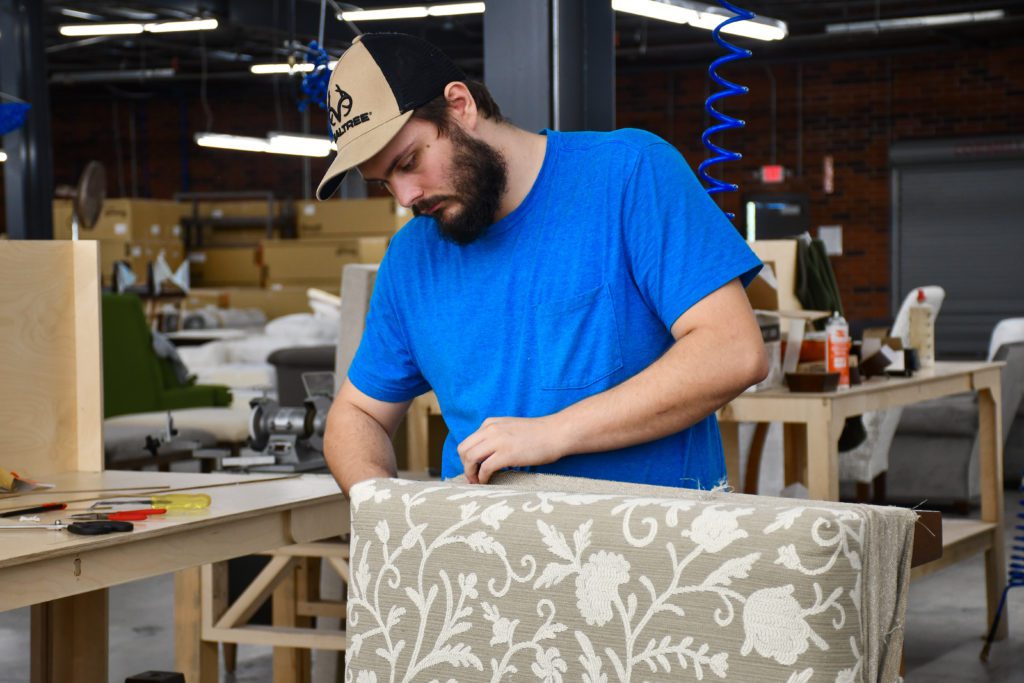
“It’s already in my blood,” he said.
For Hall, the program is the next step to maximize his education for better opportunities, but it’s also a chance to upskill. Hall and his classmates are proud of the work they produce and say they appreciate an environment that lets them be hands-on.
The academy environment makes a difference for many students who may be intimidated by the thought of returning to school. It’s mostly a hands-on program and operates in buildings that look and feel much like furniture manufacturing facilities.
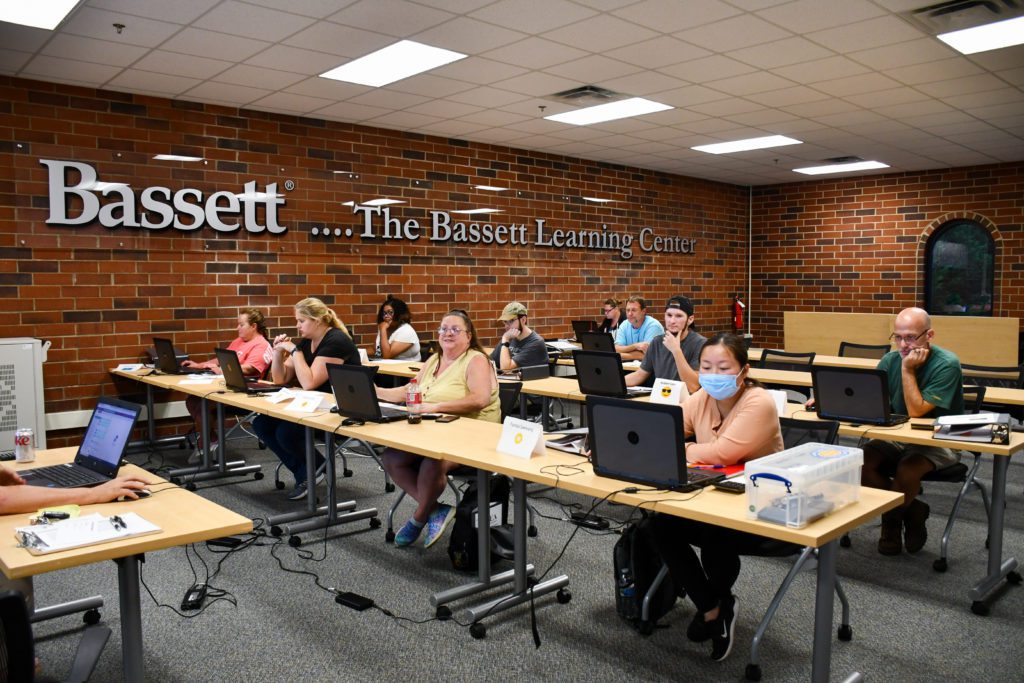
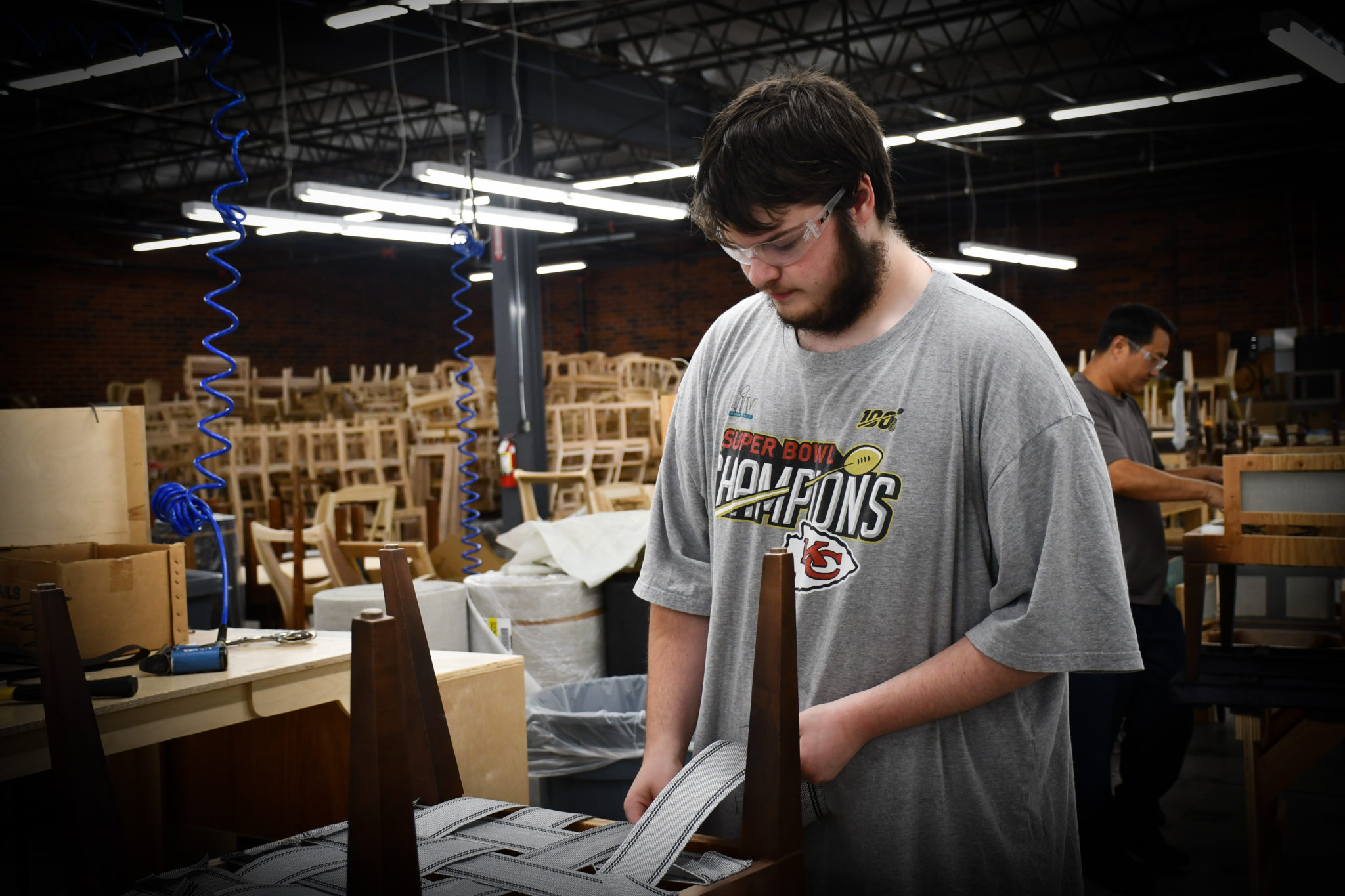
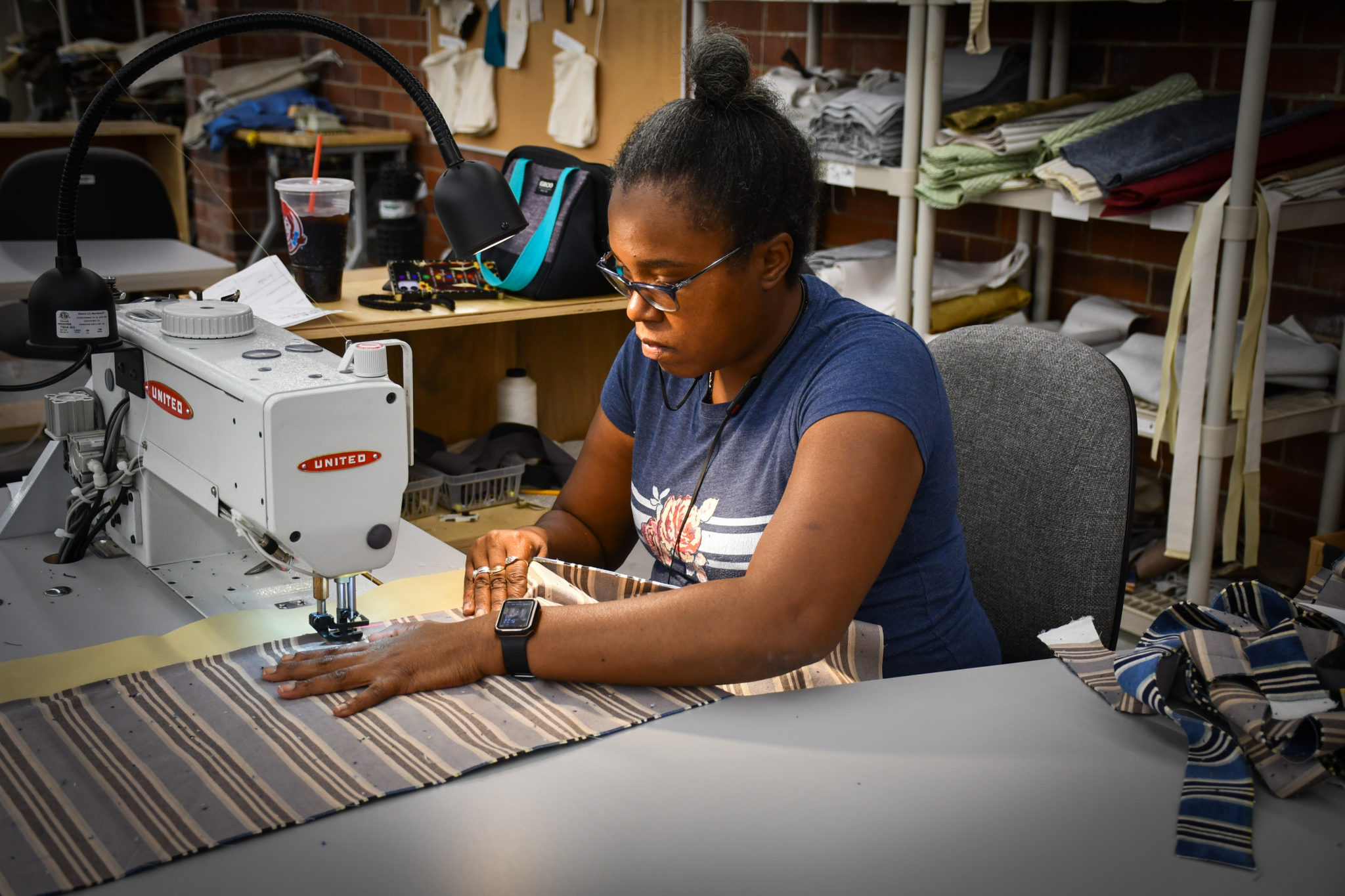
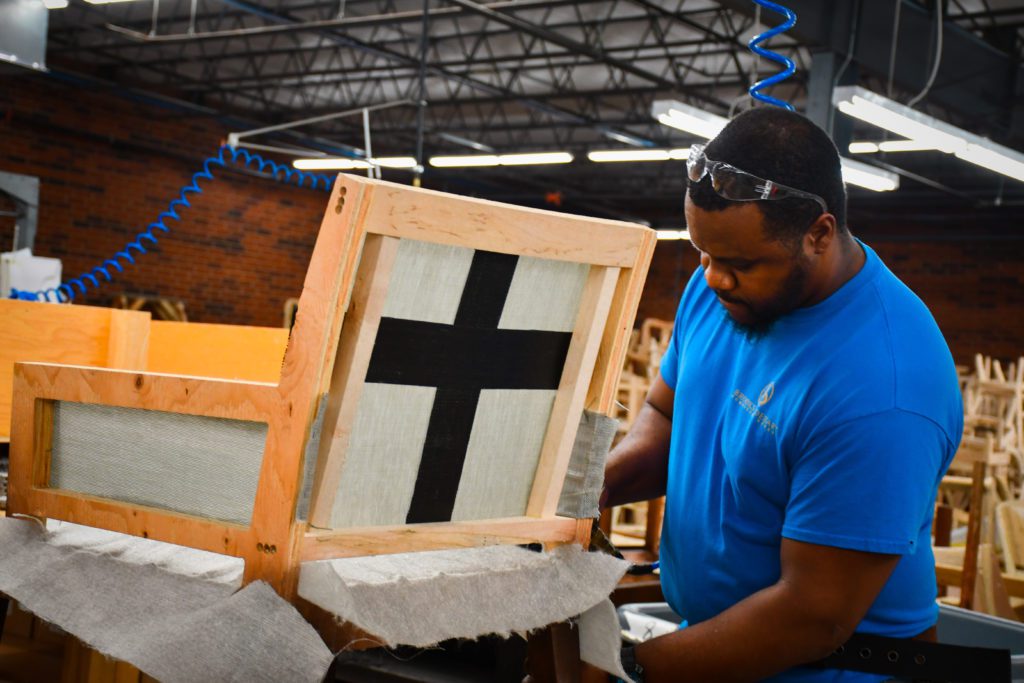
“It’s a much more supportive atmosphere,” said Gary Muller, CVCC’s executive dean of economic development and corporate education.
“Since 2014, 100% of the graduates of our furniture academies have been employed in the field,” Hinshaw said.
College leaders said the numbers are a testament to the collaborative effort and thanked Hinshaw for his leadership and gathering industry leaders to the table.
“Catawba Valley Community College realized several years ago that we had to change the way that we do business, so we sat down with executives of the major manufacturing sector here in this area,” Hinshaw said. “We have been able to turn ourselves inside out and deliver programming that is both relative and sustainable. We listen. That’s what we do.”
A collaborative approach
While furniture manufacturing is the largest employer in Catawba Valley’s region, it isn’t the only industry in need of trained employees.
After launching two furniture academies, the college established additional academies, including construction careers, hospitality, maintenance technology, and marine mechanical technology.
Like the furniture academies, these programs train or retrain employees with the qualified skills needed to advance their careers. They also help employers hire people from within the community.
It’s a model that has gained state and national recognition.
People from all over the United States have called – even visiting some of the academies – hoping to better understand how they can start something similar.
Cindy Fulbright, Catawba Valley Furniture Academy project manager, said lack of support from business partners often prevents others from replicating something like the Furniture Academy.
“Our business partners have been gracious to us. They donate funds, they donate scholarship funds, they donate materials, they donate time to help with whatever our needs are,” Fulbright said.“ And they are a leader in what makes this academy what it is.”
“We need the experts at the table because things change so quickly,” said Tammy Muller, CVCC’s executive director of strategic business partnerships and SkillsUSA.
While the college is listening to business and industry, they’re also listening to students about their academic goals. The academies can be a path toward future credentialing, if students choose that option.
“A lot of students come in and they don’t think they’re able to do this,” Fulbright said. “When they make it through [the curriculum] and move into the lab area…that changes their lives and their self-esteem and who they are.”
“Education is one of the most pivotal tools we have to break cycles,” said Randall Burns, CVCC’s senior executive director of corporate and economic development. “It has an impact on their children and future generations.”



